Narratorial Workshop
Examines behaviour using narrative, being it in an already published form, through personal writing exercises on the day by participants, or by testing more gut-level reactions to certain words that might provoke pleasant or unpleasant responses.
In psychology, narrative theories of identity consider that our personhood is assembled in a structured narration of our life in stories with some sense of direction: a beginning, a middle and an end (MacIntyre, 1985, 1990). The fact that we are storytelling animals, as Jonathan Gotchall so rightly puts it, means that literature represents a privileged source of information on the articulation of morality and emotion. There have been several studies that identified a link between reading fiction and an enhanced capacity for empathetic responses (Mar, Oatley, 2008, 2011; Johnson, 2012), although some researchers have claimed that empathy is not necessarily needed for moral judgment, and can even be potentially responsible for poor moral discernment (Prinz, 2011). A study published in Science by David Kidd and Emanuele Castano (2013) concluded that reading fiction improves the development of Theory of Mind (ToM), understood as the ability to “infer the full range of mental states (beliefs, desires, intentions, imagination, emotions, etc.) that cause action […] to be able to reflect on the contents of one’s own and other’s minds” (Baron-Cohen, 2001: 175). Other studies have suggested that we make different moral deliberations depending on whether we are judging something in our native language or in a foreign one (Geipel et al., 2015). Through a series of narratorial exercises, participants will explore the representational function of literature in the hope of better understanding our emotions and moral judgments.
Available soon.


